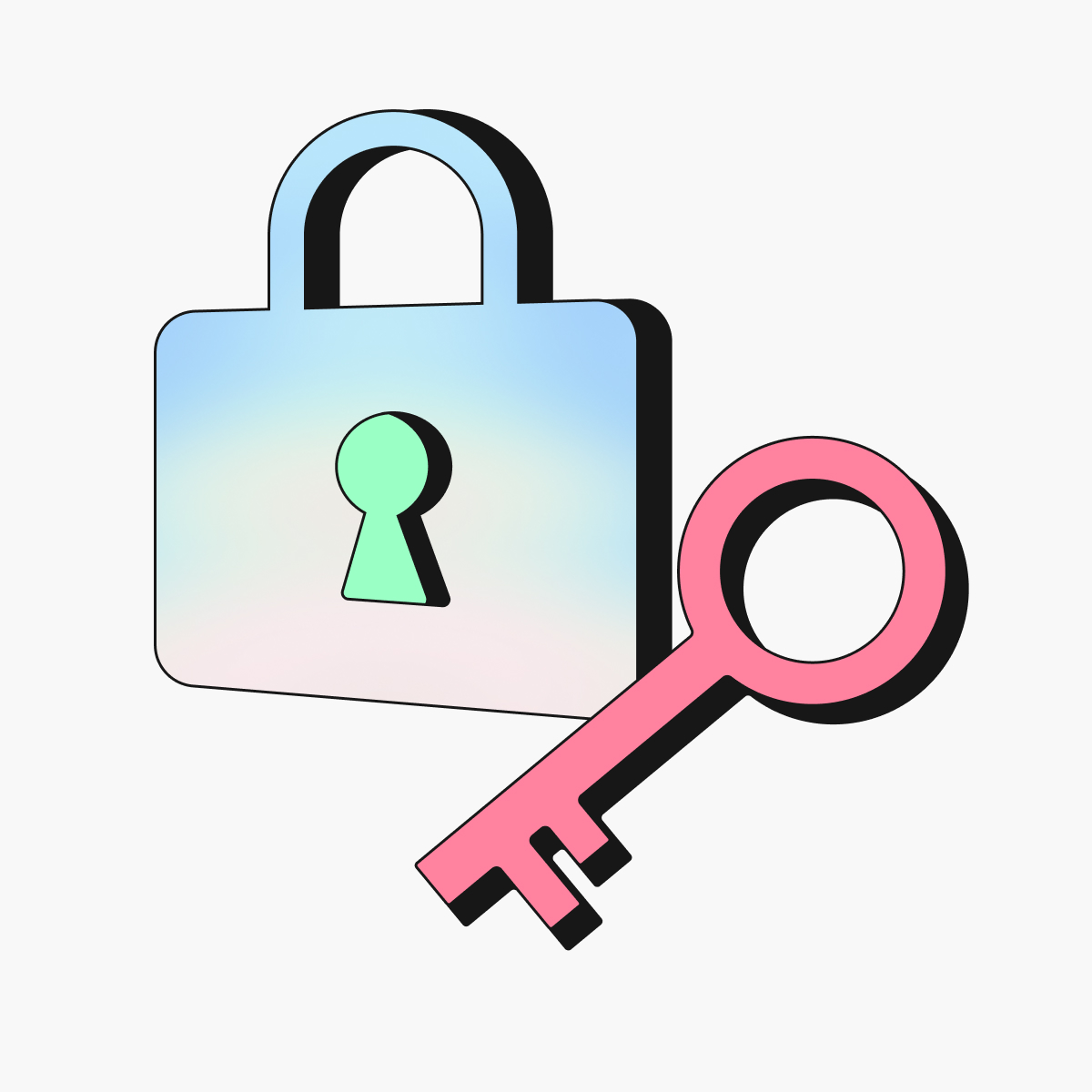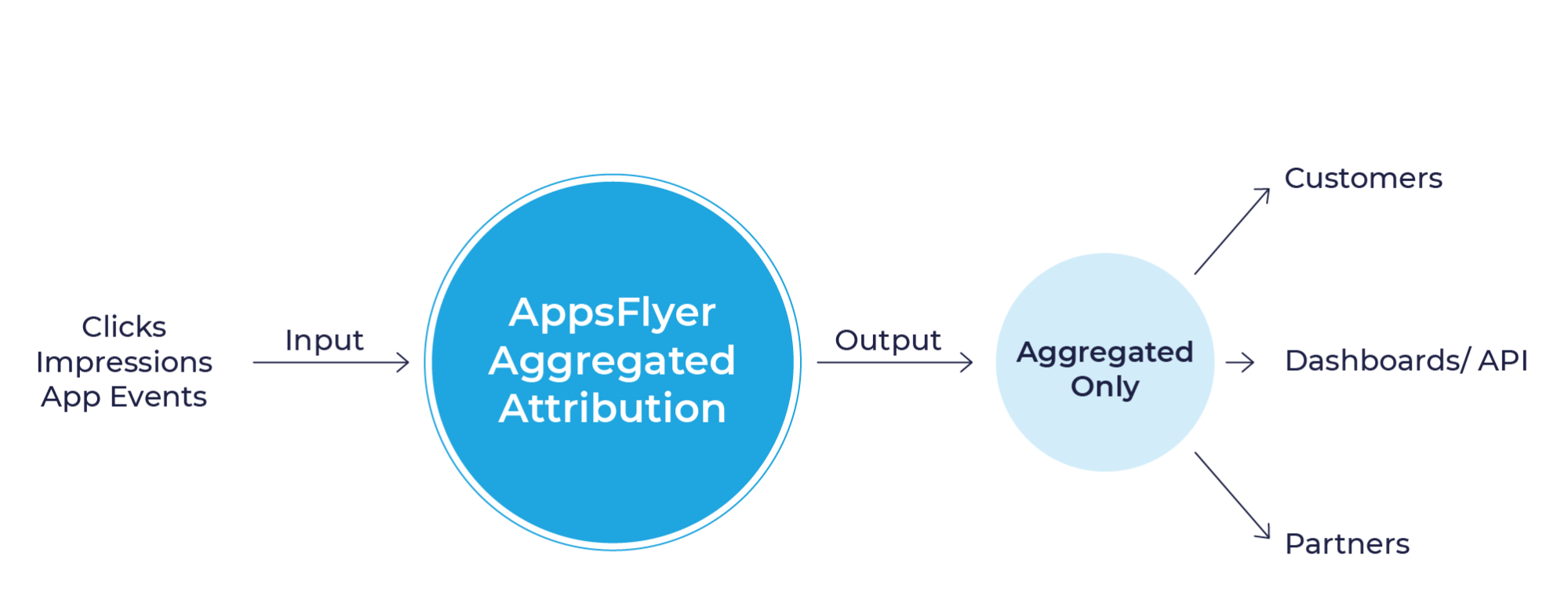Aggregated attribution innovation based on differential privacy


The following article describes the principles of our strict aggregated attribution mode only. Please refer here for more specific implementation details.
The last few weeks have been busy for the entire App Store ecosystem, ourselves included. The AppsFlyer offices around the world have been feeling like an App Store support center, calmly managing hundreds of calls and emails from app developers and ecosystem partners of all shapes and sizes.
We are humbled to be seen as a trusted partner by many in the ecosystem, and we take this responsibility very seriously. To make sure we handle this challenge in an unbiased manner, I asked the team to take their AppsFlyer hats off and put their ecosystem hats on, placing our customers and our customers’ customers at the center of every decision we make.
iOS 14 is not about IDFA deprecation – it’s about users’ privacy
While the IDFA is not inherently “good” or “bad”, the concept of IDFA deprecation has been discussed for quite some time now, and there have been many good reasons for Apple to take action on this. With that, iOS 14 is not about IDFA deprecation, it is about improving user privacy, a value which we at AppsFlyer fully support and embrace.
Since the early days, privacy has been a core value at AppsFlyer, and one of the main reasons for our success. Our long term commitment and investment in privacy pushed us to become experts in the privacy domain. As a CRM-like SaaS platform, AppsFlyer allows app developers to manage, analyze, and secure their consumers’ data.
Our privacy-by-design software enables app developers and partners to make the right choices to delight their end-users, protect their privacy, and help them comply with regulations and platform policies.
In our effort to maximize user privacy and user experience, we spent the last few years working on several solutions to operating in an IDFA-less world. From probabilistic modeling, which we introduced over two years ago, to ideas for the App Store and iOS in the form of IDFA alternatives to preserve the benefits of attribution for consumers and maximize their privacy.
Today, I’d like to introduce one of the exciting ideas we’ve been working on for our iOS 14 readiness – aggregated attribution. This aggregated attribution solution is based on differential privacy principles and built-in strict privacy measures to align with iOS 14 privacy requirements.
What is differential privacy? Simply put, differential privacy takes data anonymization and aggregation a few steps further in terms of privacy. It makes it practically impossible to tell if an individual is included in the computation or dataset by looking at the output.
Aggregated attribution based on differential privacy – highlights:
- The solution is based on the principles of differential privacy, deterministic (where allowed) and non-deterministic methods, probabilistic modeling, and signals from Apple’s SKAdNetwork.
- The core of the solution is aggregated level attribution, reporting, and integrations. To clarify: user-level campaign details might be available only if: (i) the user gave AppTrackingTransparency (ATT) consent on both source app and target app, or (ii) both apps belong to the same developer i.e. have the same IDFV.
- Impression based modeling will be available only on an aggregated level, regardless of whether the user provided ATT consent.
- User-level click and impression data will not be available to anyone and will be used solely for aggregated attribution modeling. Click and impression data will be deleted based on a strict data retention policy.

The mechanics of campaign attribution modeling are basically implementation details, not the core of it. Implementation details can vary, and can be updated over time. It can be a combination of probabilistic modeling, which is aligned with differential privacy input, data ‘noise’ requirements, and other deterministic or non-deterministic methods, such as a future App Store referral API, or an updated version of SKAdNetwork.
This solution provides a high level of privacy and aggregated accuracy. It maintains the attribution benefits of the IDFA while keeping the bad out, and allows the ecosystem to continue to focus on consumers. Like many changes our industry has faced in the past, this will require some adaptability from app developers and our partners.
In the last couple of weeks we’ve been engaging the market to present and discuss this solution. Several partners are already in different stages of implementation, and many customers are excited about it. In the coming weeks, we are going to extend the discussion to the entire app market, to discuss this solution as well as other solutions we’re working on.
Thanks,

Some additional reading/viewing:
- A short video about differential privacy
- The Algorithmic Foundations of Differential Privacy – Cynthia Dwork & Aaron Roth






